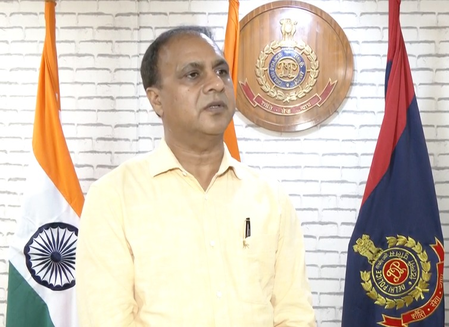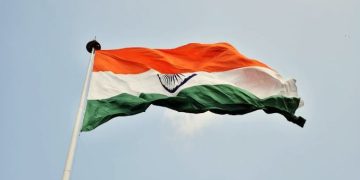New Delhi: Approximately 900 illegal Bangladeshi nationals residing in Delhi have been identified and will be deported after proper verification, Delhi’s Special Commissioner of Police, Crime Branch, Devesh Chandra Srivastava said Thursday, as the process of deporting undocumented migrants has gained momentum in the wake of the Pahalgam terror attack.
Over the past six months, approximately 700 undocumented migrants in Delhi have been repatriated to Bangladesh under the Indian government’s ongoing “push-back” strategy. According to data from the Border Security Force (BSF), Delhi ranks highest among all states in terms of the number of individuals deported across the eastern land border.
The crackdown on undocumented Bangladeshi nationals has intensified across several states, particularly those governed by the BJP. In this period, a significant number of alleged illegal immigrants from Bangladesh have been detained in Delhi, Haryana, Rajasthan, Gujarat, Maharashtra, Uttar Pradesh, and Goa. Following their detention, they have been processed and handed over for deportation.
Speaking to IANS, Devesh Chandra Srivastava said, “All our field units, including the Crime Branch and Special Cell, are actively engaged in identifying and taking legal action against Bangladeshi nationals living illegally in Delhi. Those without valid documents have been detained, and legal proceedings are underway. Additionally, action is being taken against individuals who help these migrants obtain fake documents.”
He added, “This special campaign began in November and is yielding significant results. It is being conducted across Delhi based on secret intelligence inputs and public complaints.”
Srivastava shared further details about the current status of the identified migrants.
“Approximately 900 Bangladeshis have been identified this year. Those whose documents were verified and found legitimate were released, while others are still under scrutiny. The remaining individuals have had legal action initiated against them, including detention, deportation, and criminal proceedings,” he said.
To encourage public participation in the campaign, Srivastava urged citizens to share information with the authorities.
“Anyone with information can contact the police via the 112 helpline or reach out to local officers such as the SHO, ACP, or DCP of their area. Information can be shared either in writing or over the phone, and appropriate legal action will follow,” he concluded.
IANS






































